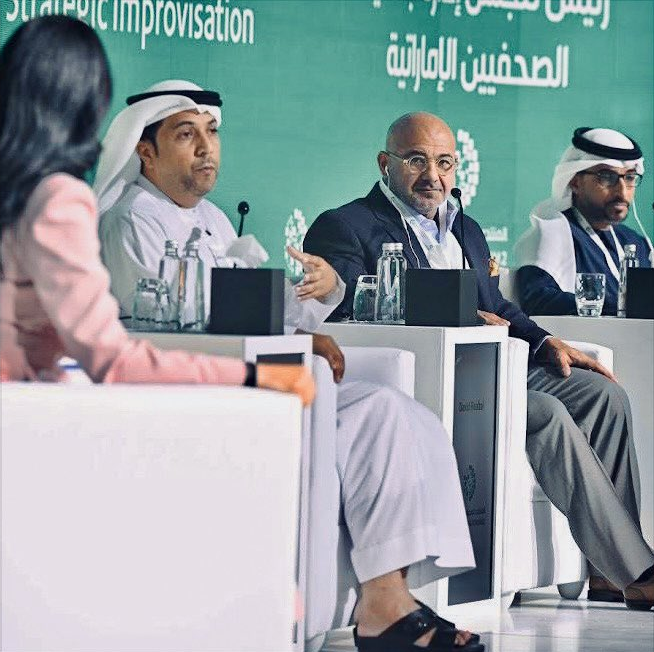The https://english.atlatszo.hu use cookies to track and profile customers such as action tags and pixel tracking on our website to assist our marketing. On our website we use technical, analytical, marketing and preference cookies. These are necessary for our site to work properly and to give us inforamation about how our site is used. See Cookies Policy
Justice Department database reveals new documents about Orbán’s lobbying attempts in the US
In October, a US lobbyist for the Hungarian government, David Reaboi, published a detailed account of the activities for which he received a monthly salary of HUF 3 million from the Hungarian Foreign Ministry between 2020 and 2021. Reaboi, who previously worked on Donald Trump’s team, was also paid to get Hungarian politicians on US talk shows, but rarely succeeded, and was also paid to defend the Orbán government on Twitter. Reaboi is not the only US lobbyist for the Hungarian government, and according to press reports, the Biden administration is increasingly disturbed by the Orbáns’ networking in Washington, which it sees as interference in US domestic politics.
“Evil George Soros demands Biden and the EU destroy Hungary and Poland. We must stand against this” – among othes, this Twitter (now X) post was made on the account of the Hungarian embassy in the US, according to documents released by the Hungarian government’s Washington lobbyist David Reaboi. Reaboi was paid a total of $35,000 (12.4 million forints) between 2020 and 2021 for various services, including defending the Hungarian government on social media.

Friend of Orbán, Trump and the Saudis
Reaboi already declared his status as a lobbyist for the Hungarian government in 2020, but recenty he has unexpectely published new documents in the US Justice Department database. According to our US sources, the move may be connected to the Biden administration’s recent crackdown on foreign lobbyists, including those acting on behalf of Hungary, who are seen to influence US domestic politics by building networks with right-wing politicians and public figures there.
In interviews, Reaboi spoke about having Hungarian Jewish roots, and have and lived in Hungary for a time after 1989. Since the 2000s, he worked for several US right-wing think tanks, including the Center for Security Policy. He also worked with Andrew Breitbart, founder of the far-right Breitbart News. After Breibart’s death, the media company’s CEO became Steve Bannon, a key figure on the Anglosphere’s far right and the head of Donald Trump’s campaign in 2016.
Reaboi also claims to have worked for Trump, and was national security adviser after the former president’s election in 2017, alongside Bannon. Since than, Reaboi has distanced himself from Trump, backing former presidential opponent Ron DeSantis in the current primary campaign
and recently calling Trump “the assassin of the American right”.
Apart from his work for the Hungarian government, Reaboi is known for his statements and articles defending the Saudi Arabian regime and attacking Qatar, going as far as to relativise the murder of the Saudi Arabian journalist Jamal Hasoggi. During its four years of operation, his think tank, Security Studies Group has received more than a million dollars in revenue from unknown sources, which Reaboi’s critics suspect came from Saudi Arabia. Reaboi has denied undeclared lobbying for the Saudis.
I know you’ve got no education—and, judging from your prose, you clearly have a hard time reading and writing—but “Pro-Saudi Lobbyist” means “lobbyist who is pro-Saudi,” not a lobbyist for Saudi Arabia. You might be less of a scumbag if you’d be intelligent, so work on that. https://t.co/tVS2OxFVfN
— David Reaboi, Late Republic Nonsense (@davereaboi) May 14, 2023
“I’m not here for the money”
Reaboi disclosed his lobbying activities on behalf of the Hungarian government under the US Foreign Agent Registration Act (FARA), which requires individuals and companies to disclose payments received from foreign governments for their U.S. activities. In October, Intelligence Online noticed that Reaboi had significantly expanded his earlier statement, revealing more details about the cooperation between him and the Hungarian foreign ministry.
In his 2020 entry, Reaboi listed his task as “to generate positive US media coverage of Hungary”, including by briefing journalists and participating in social media debates. It was only after three years that he made public the results of his activities, including the 60 Twitter posts, copies of which are now also in the US Department of Justice database.
Among the Tweets paid for by the Hungarian State Department is a post promoting an interview he gave on Neokohn.hu, a portal affiliated with the Unified Hungarian Jewish Congregation (EMIH). During his lobbying activities, Reaboi has repeatedly published statements in which he has sought to deflect accusations of anti-Semitism against the Hungarian government for its campaign against George Soros. The topic also came up in the Neokohn interview, Reaboi said,
“Hungary’s problem with Soros is his ideology – and the millions he spends to promote it. The ability to criticise the effects of Soros’ (or anyone else’s) philanthropic activities is a basic human right: freedom of speech. To accuse Soros of anti-Semitism is to stifle criticism.”
In another place, he posted about party politics in Hungary:
“Shame: the media attacks the anti-Semitic Jobbik party to make Hungary look bad – but when Jobbik joins forces with the left against Orbán and centre-right Fidesz, the insults suddenly stop.”
In several Tweets, Reaboi responded to his own critics. In one post – which he later ironically shared in the FARA database as a paid Tweet – he writes that he supports Orbán’s party not for money, but out of conviction.
“Anyone who has been following me for a while knows that as a Hungarian Jewish-born conservative American, I support Hungary – especially when the media and hard left NGOs attack them. I am not here for the money.”
In another sponsored tweet, he promoted the Scruton café in Budapest, which was founded by Zoltán Szalai, the director general of the Mathias Corvinus Collegium (MCC), a café chain funded with billions of forints of public money. In September, the café chain won a HUF 50 million grant from the Lajos Batthyány Foundation to expand in Poland.
Stricter enforcement of FARA
Reaboi’s documents also reveal which US media and journalists he contacted to generate better press coverage for the Hungarian government. According to the document he disclosed, he sent out seven emails during the term of the contract to this end. The archives of these media outlets show that this had little effect.
One of the lobbyist’s recipients, for example, was Tom Rogan, a journalist for the conservative Washington Examiner, who continued to write critically of the Orbán government even after the request, writing in January this year that Hungary’s NATO membership should be suspended because of the government’s friendship with Russia and the fact that Russian spies were allowed to move freely in Hungary.
The requests also clearly reflect the aim of generating a positive response to the Orbán government in the American Jewish press (Algemeiner and Tablet Magazine are among the recipients), presumably linked once again to accusations of anti-Semitism in the wake of the Soros campaign.
A late update of a FARA declaration (such as in the case of David Reaboi) occurs when the Justice Department finds that the original FARA declaration is inadequate, at which point the Department can launch a so-called compliance investigation. These cases sometimes take months, sometimes a year, so it is difficult to know when the investigation began.
According to our US sources, the Department of Justice has recently taken a stricter approach to FARA enforcement: since 2016, the Department has attempted to register unregistered lobbyists and require greater publicity for registered actors. This is related to the fact that several associates of Donald Trump have been on the payroll of foreign authoritarian regimes. Examples include George Nader, and Paul Manafort, both in contact with Saudi interests, and Elliott Broidy, a Trump fundraiser, who pleaded guilty in 2020 to undeclared lobbying with Malaysia and China.
In August, the US government introduced a new measure to significantly restrict visa-free travel for visitors from Hungary. US officially justified the decision on the grounds of long-standing security concerns arising from the simplified naturalisation procedure in Hungary. However, Intelligence Online’s sources say that the decision was also influenced by the recent regularity of meetings between representatives of the Orban government and Trump-supporting officials of the Republican Party.
Pegasus spy software developer’s lobbyist also paid by Hungary
Reaboi is not the only US lobbyist who has been in contact with the Hungarian government.In 2019, the Hungarian embassy signed a $160,000 (HUF 56 million) contract with the PR firm Policy Impact Strategic Communications to organise positive media coverage for the Orbán government.
The results of this included a coverage of Hungary on Tucker Carlson’s TV program. After 2019, Carlson did a series of reports praising the Orbán government. In one occasion, an entire episode of his show was shot in Hungary. During his visit, he interviewed Viktor Orbán and was flown around by a helicopter of the Hungarian Armed Forces. However, these activities were proven to be damaging for Carlson’s carreer: according to the Huffington Post, his trip to Hungary, which was not authorized by the Fox TV network led to the cancellation of his show.
Although the Hungarian government has mainly been in contact with lobbyists linked to the American right and far right, the year before last it also contracted a firm closer to the Democratic Party. In January last year, Direkt36 reported that the Hungarian Ministry of Foreign Affairs and Trade (MFA) had contracted a firm of George Tucker to provide strategic legal advice in the US for nearly HUF 80 million.
George Tucker is a British ex-diplomat who, according to Axios, is a supporter of the Democratic Party, as is his partner Duncan McFetridge, who works for the Hungarian client and previously provided services to Democratic politicians in California.
George Tucker, on the other hand, lobbied and advised the Israeli NSO Group, which produces the Pegasus spy software, and its parent company Q Cyber Technologies. This was the spy software that was purchased by the Hungarian government, among others, and was used to eavesdrop on journalists, including some working with Átlátszó.
Written and translated by Zalán Zubor. The original, mor detailed Hungarian version of this story can be found here.
Share:
Your support matters. Your donation helps us to uncover the truth.
- PayPal
- Bank transfer
- Patreon
- Benevity
Support our work with a PayPal donation to the Átlátszónet Foundation! Thank you.
Support our work by bank transfer to the account of the Átlátszónet Foundation. Please add in the comments: “Donation”
Beneficiary: Átlátszónet Alapítvány, bank name and address: Raiffeisen Bank, H-1054 Budapest, Akadémia utca 6.
EUR: IBAN HU36 1201 1265 0142 5189 0040 0002
USD: IBAN HU36 1201 1265 0142 5189 0050 0009
HUF: IBAN HU78 1201 1265 0142 5189 0030 0005
SWIFT: UBRTHUHB
Be a follower on Patreon
Support us on Benevity!



